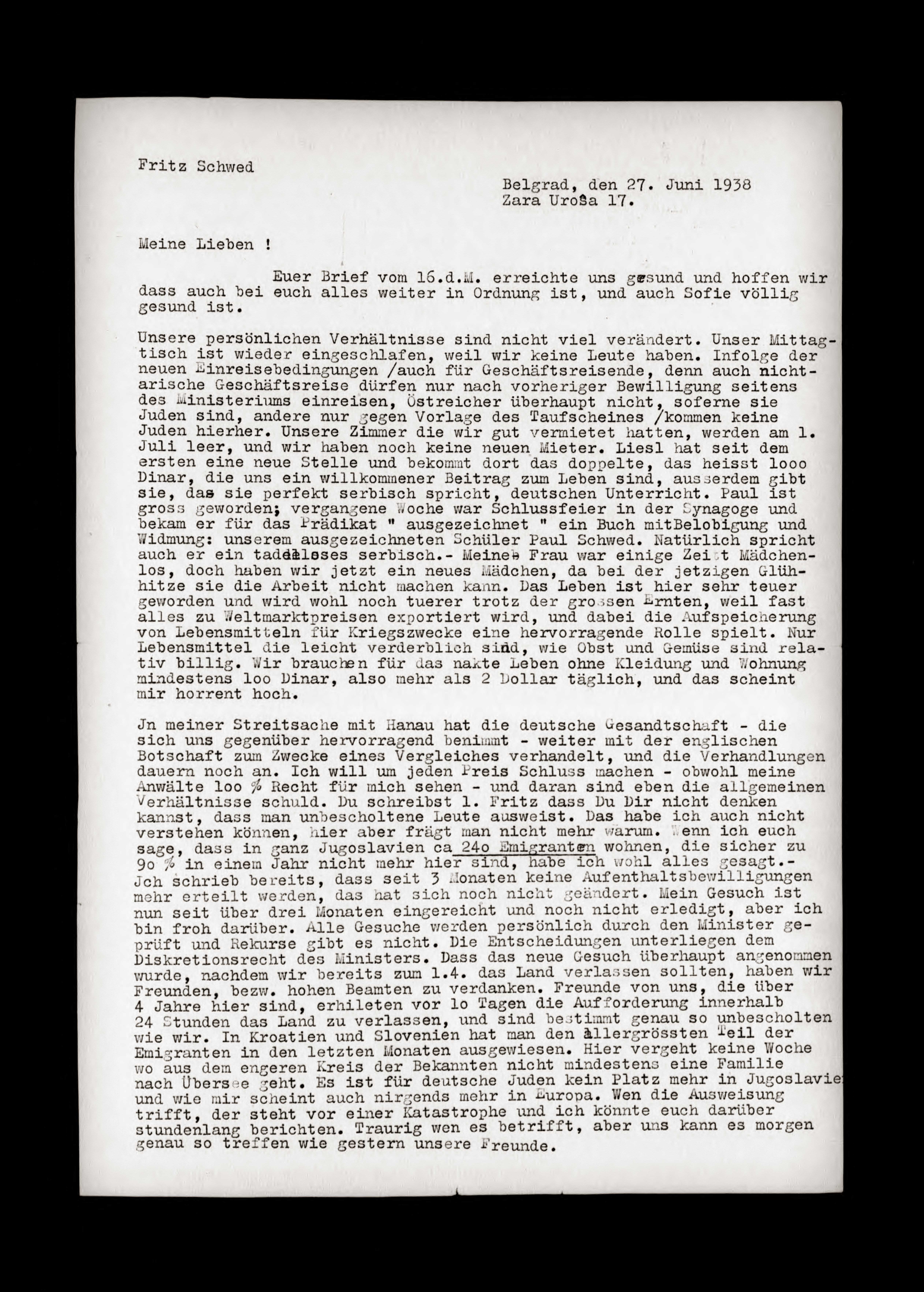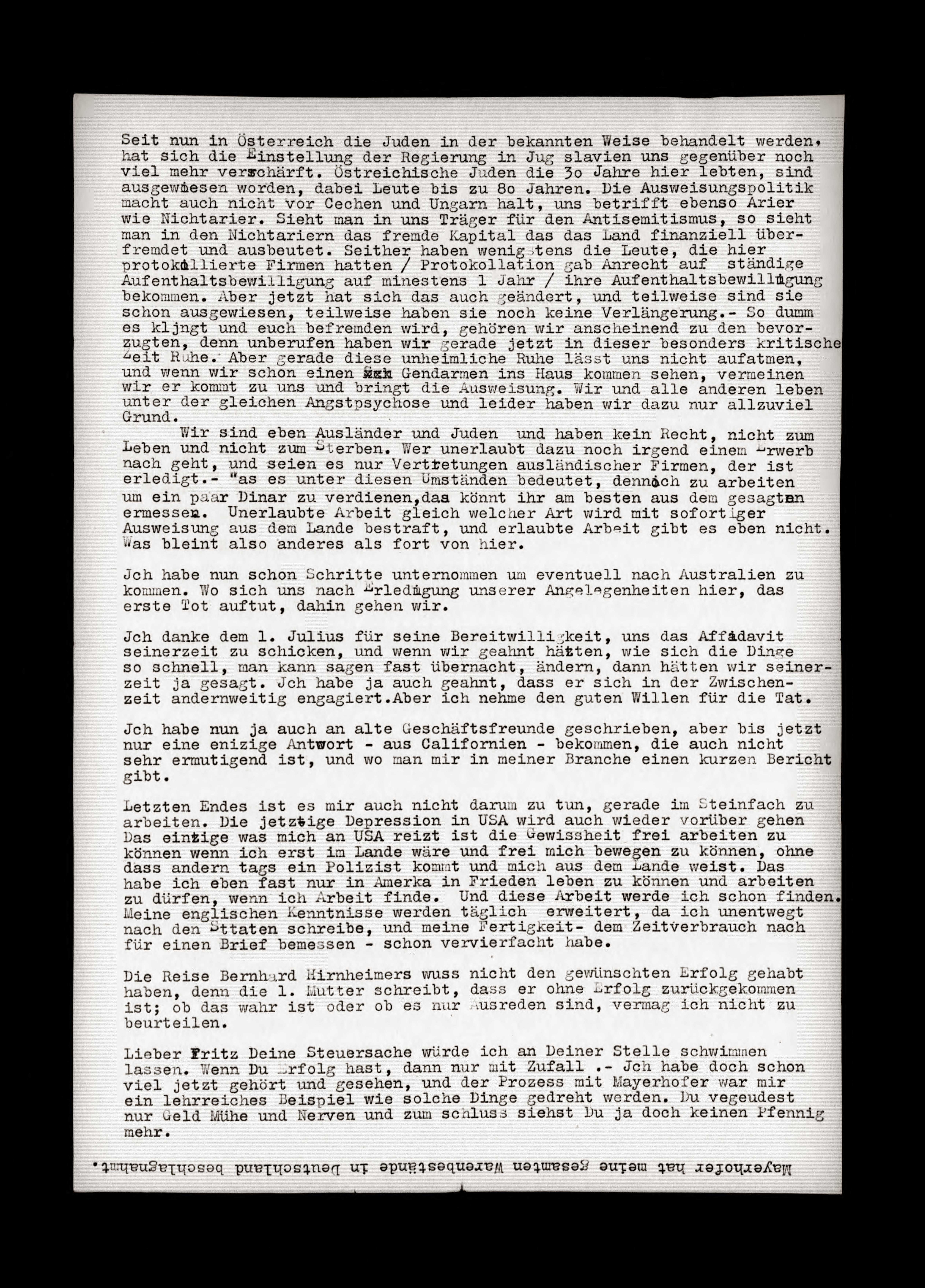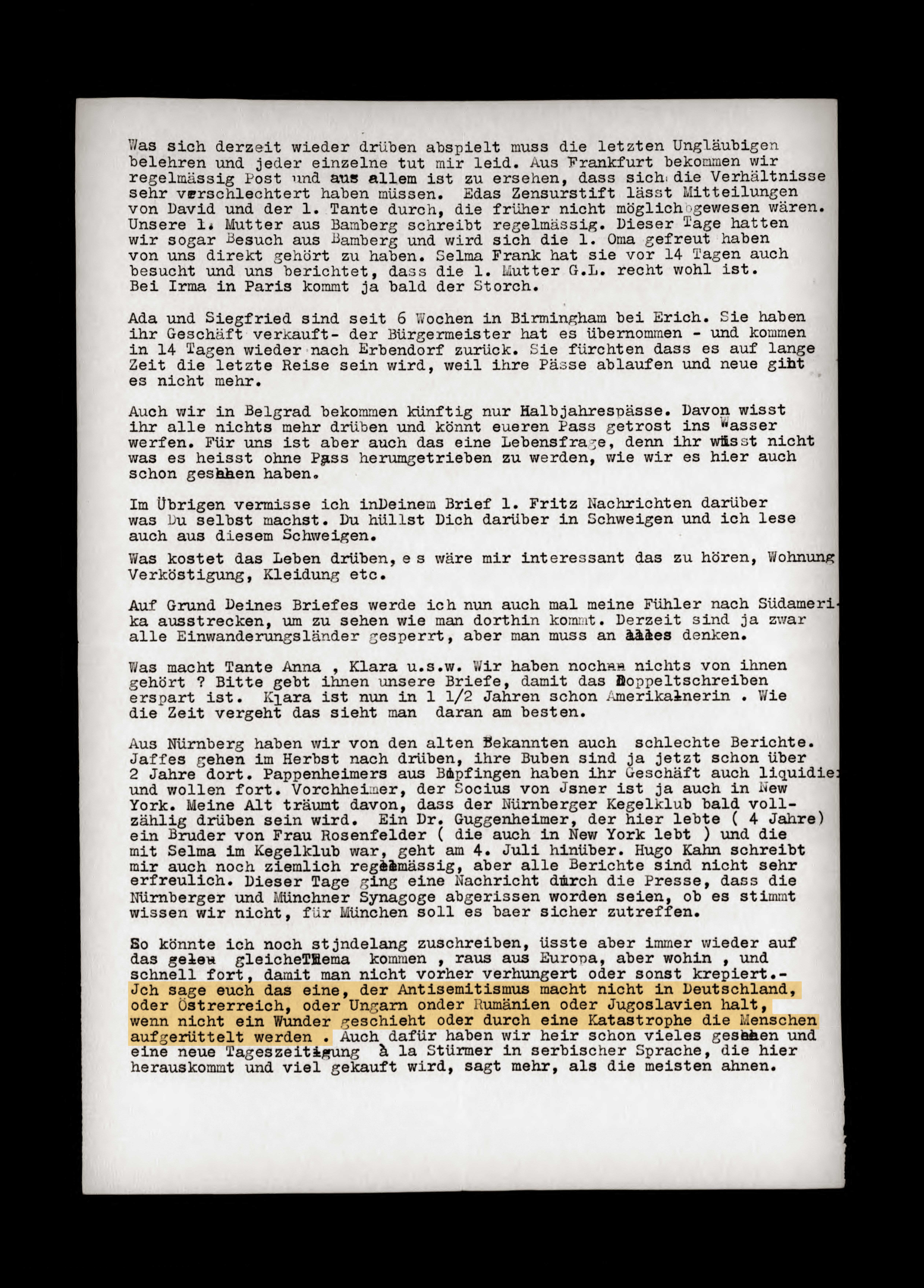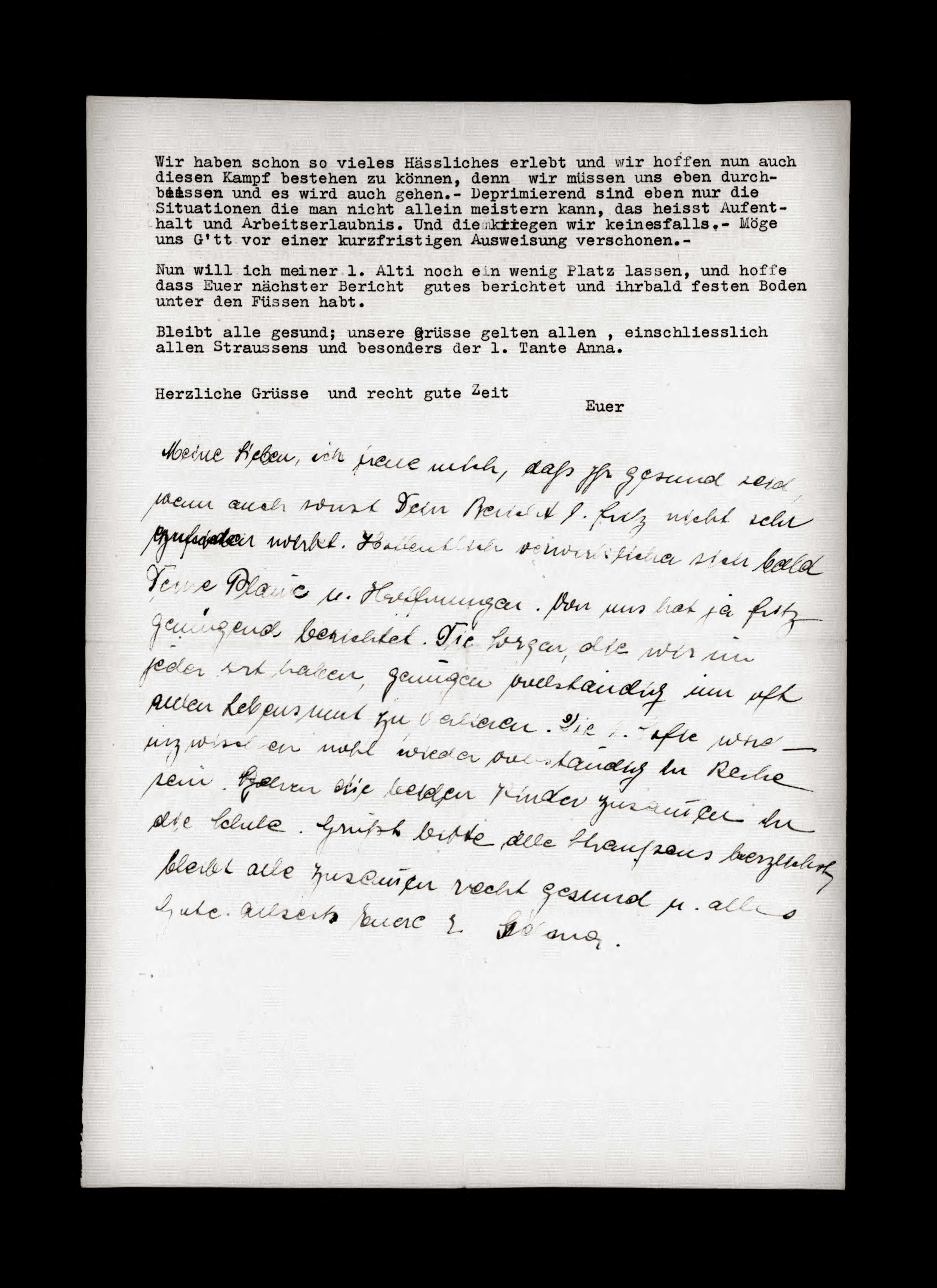Deportation within 24 hours
The situation is precarious for Jewish immigrants in Yugoslavia

-




“I am telling you one thing: antisemitism won't stop in Germany, or in Austria, or in Hungary, or in Romania, or Yugoslavia, if no miracle will happen or people will be stirred up by a catastrophe.”
BELGRADE/NEW YORK
While antisemitism was by no means a new phenomenon in Yugoslavia—as a matter of fact, especially since World War I, the entire political spectrum found reasons to attack Jews—under the impact of events in Germany, the situation deteriorated in the 1930s. Fritz Schwed from Nuremberg was under no illusions regarding his and his family’s temporary refuge. In this lengthy letter to his old friend from Nuremberg days, Fritz Dittmann, who had fled to New York, Schwed describes the dismal situation of emigrants in Yugoslavia, who are routinely expelled with just 24 hours’ notice. Even older people who have resided in the country for decades are not exempt from this cruel policy. Emigrants are forbidden to work, and when they are caught flouting the prohibition, they have to be prepared for immediate expulsion. Concluding that “There no longer is room for German Jews in Yugoslavia, and it seems to me, nowhere else in Europe, either,” Schwed explores possibilities to immigrate to Australia or South America.
TAGS: ANTISEMITISM, BELGRADE, DISPLACEMENT, EMIGRATION, EXPULSION, IMMIGRATION, IMPOVERISHMENT, JUNE 27, LETTER, NEW YORK, NUREMBERG, POLITICS, REFUGEES, WWISOURCE
Institution:
Leo Baeck Institute – New York | Berlin

Collection:
Gerda Dittmann Collection, AR 10484

Original:
Box 1, folder 3
on the days before



Curated by Leo Baeck Institute – New York | Berlin © 2018 Leo Baeck Institute
Website and exhibition design by C&G Partners









































